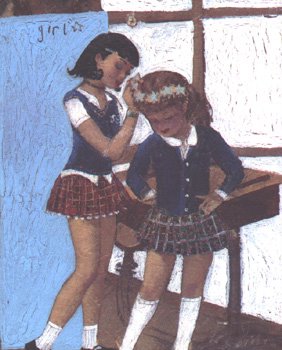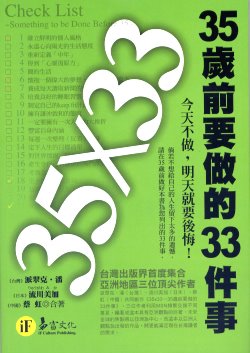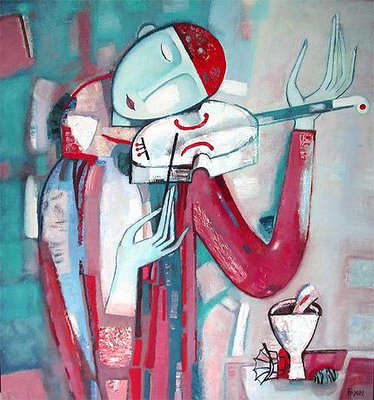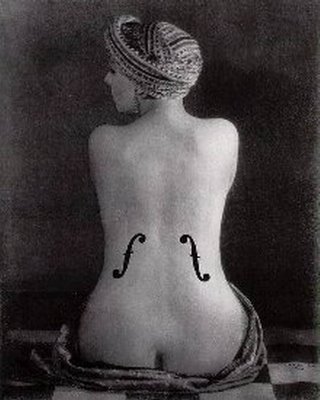
By Sarah Schafer, Newsweek International, Feb. 27, 2006 issue
Wang Xiao Feng hails from northeastern China, a region known for its freezing winters and for its theater, in which performers improvise banter to musical accompaniment. Wang grew up on a farm, and for most of the frigid year there was nothing to do but huddle by the fire trading zingers with his family and friends in imitation of the performers they admired. As an adult he worked as an entertainment writer, most recently for a magazine called Life Weekly in Beijing. His reviews were circumspect: even when he hated a performance, he tempered his criticism for fear of offending the government's propaganda department. When he read his first issue of Rolling Stone, he lamented the fact that he could not write so openly or caustically. Then, in 2004, a friend introduced him to blogging. Wang was delighted. For the first time since childhood, he got in touch with his inner smart aleck.
Wang quickly discovered that in the freewheeling world of blogs, there are a thousand ways to make a statement. He posted under the name Dai San Ge Biao, Chinese for "wears three watches." The handle was a play on former president Jiang Zemin's eye-glazing theory of San Ge Dai Biao, or "three represents," which promotes the idea of an inclusive Communist Party. He called his blog Massage Milk, a tribute to Chinese massage parlors, often covers for brothels, which are illegal. And he wrote flippant essays, often peppered with curse words, attacking double-talking officials, absurd laws and the sad state of Chinese journalism. "In China, freedom of speech has found an outlet on blogs," says Wang, who thinks deeply and speaks rapidly. "Blogs are filling in the gap between the freedom the government allows and the freedom it should allow."
That gap seems wider than ever. In Washington, D.C., last week, U.S. legislators blasted officials from Internet giants Yahoo, Google and Microsoft for kowtowing to the Chinese government. They're accused of helping to maintain the so-called Great Firewall of China by filtering out politically sensitive search terms and even on occasion leading authorities to users who have offended the regime. (At least one such user, Shi Tao, is now serving 10 years in prison for divulging state secrets.) Democratic congressman and Holocaust survivor Tom Lantos compared their activities to IBM's sale of data-processing equipment to the Nazis, and there was much talk of legislation to restrict how companies could do business in countries where the Internet is restricted (for example, prohibiting them from locating servers there). The tech firms argued that their mere presence in China—even if constrained by Beijing—promoted a greater flow of information than would be available otherwise. But the vehemence of the criticism they faced testifies to a growing worry: that talk of the liberating nature of the Internet is empty, and that, in fact, Beijing is winning the war to control what its citizens read, write and think.
Wang, and the millions of Chinese who have taken to blogging in the last couple of years, defy that interpretation. Frustrated by years of repression, egged on by Internet companies eager to recruit users, and put at ease by the simple technology, these ordinary citizens are speaking out as fast as they can type. Most are uninhibited by the censors: young, tech-savvy members of the urban elite, they have learned to choose their words carefully to stay one step ahead of efforts to monitor them. True, a few high-profile blogs have been shut down by the government, and most others do not challenge the regime directly. But if a rambunctious online world of celebrity gossip, snarky commentary and personal screeds is revolutionizing the way information is generated and exchanged in the West, it's having an even greater impact on China, where individual voices have long been stifled by culture as well as the commissars. "There's no other use of the Internet that will bring greater reform to Chinese society," says Fang Xingdong, founder of Beijing-based service provider Bokee, on which 50,000 new bloggers register each day.
The phenomenon is itself a challenge to the old order. Since the communist revolution, Chinese writers have worked under the jurisdiction of writers' associations, obligated to compose for the glory of the party. Now, for the first time, they are self-publishing in large numbers, and the state does not entirely control the flow of information. Many bloggers don't consider themselves activists but insist they are changing the country for the better simply by engaging in open discussion.
Like China, everything about the phenomenon is big. At the end of last year, more than 30 million bloggers were registered across the country, more than double the number in 2004, according to Beijing-based research firm Analysys International. Of course, many of those are users who merely type hello and never blog again. But experts estimate that there are a few million active bloggers in China and that the number is growing rapidly. More than 100 firms provide blog services nationally, up from zero a few years ago. By comparison, the United States has anywhere from 15 million to 30 million active bloggers.
As in the west, computer enthusiasts pioneered the form and are still the most prolific bloggers. One of the most widely read is Hong Bo, or "Keso," a slender, ponytailed techie who writes about the latest IT advances, the Web and his personal life. (His blog, called Playing With IT, receives about 10,000 page views a day.) Others deal with people's daily lives, celebrity gossip and events not covered in the traditional media. Many are proudly frivolous: one woman recounts each meal she cooks for her family. Li Li, a former magazine columnist, started a blog in 2003 using the name Mu Zimei, detailing her sexual exploits. Her explicit entries blasted concepts like monogamy, at least where her own love life was concerned. The site was so scandalous that it drew 10 million visitors a day. Last year a young woman who called herself Mu Mu attracted thousands of viewers with clever musings on her conflicting identities as intellectual Communist Party member and girl-just-wanting-to-have-fun.
This diversity is in many ways the Chinese blogger's best defense. Some defend one-party rule and criticize others for being antigovernment. Yet others, who benignly purport to provide "party-education materials," actually give advice on how to survive campaigns by party hacks to reindoctrinate members. They offer links on where to find ideological essays that underlings can pass off to superiors as their own work.
With more than 111 million Internet users in China, the propaganda czars don't have the manpower to monitor the Web as rigorously as they would like—and the blogosphere is far more amorphous than a samizdat. Last year Beijing declared the discussion of politics, economics, foreign affairs and the military off-limits for bloggers. Yet the prohibition was so broad and absurd that it's largely been ignored. And unlike newspapers, which can be easily shut down, controversial bloggers can spring out of nowhere depending on events. After police in the southern prov-ince of Guangdong fired on rural protesters last year, blogger and dissident Wang Yi brought national attention to the shooting by posting an open letter demanding an official inquiry. Although Bokee deleted the letter, it later allowed limited discussion of the incident—which informed many who otherwise might never have heard about the shooting.
More recently, bloggers helped illuminate the pressure put on a Beijing newspaper by posting a letter from an outspoken editor blaming his bosses for stifling reporters. Beijing fired the editor, but the publicity created a backlash against censorship and prompted several party elders to call for limiting the practice. "Blogging represents a grass-roots media," said Mao Xianghui, one of China's most respected bloggers, at a blogging conference in Shanghai last fall. "We can use blogs to solve social problems."
The success of blogs is changing Chinese expectations. The controversial reports found on the Web—and the vibrant, individualistic, often emotional style in which they're written—have underscored how hollow the state-run press is. Indeed, whereas in the West bloggers tout themselves as an alternative to the mainstream media, in China they in many ways are the new mainstream: rather than, say, watching bland programs on state-owned CCTV, many urban Chinese turn to Web sites such as Sohu.com, Sina.com and Baidu.com for breaking news—and then disseminate that information via e-mail and mobile-phone text messages. "A Chinese blogger is just like an American columnist," says Zhao Jing, a journalist whose popular blog on Microsoft's blog service, MSN Spaces, was recently shuttered on orders from Beijing. "We jour-nalists can't tell the truth, so we tell it with blogs."
Even when blogs aren't tackling overtly sensitive topics, they are forging a new space for public opinion to coalesce. Often they're more in tune than any mainstream-media outlet with what people want—whether it is salacious sexual details or a contest to see who has the most extreme bad habit. Increasingly the regime is forced to respond: earlier this month Beijing banned the blockbuster film "Memoirs of a Geisha" after it triggered a hypernationalist backlash in the blogosphere against the Japanese.
Beijing has hopes of controlling this unruly world, of course. It is enlisting private firms to help with censors (following story). All Chinese blog-hosting companies use keyword filters that search for sensitive terms, such as June 4th or 6/4 (often used alone as references to the June 4, 1989, Tiananmen Square massacre). The filters sometimes block entries or black out keywords. Blog-hosting companies also watch for sensitive postings and delete them. And the government has its own overseers, who may order these firms to delete offending posts. Access to many foreign sites—including blog-service provid-ers like Google's Blogspot—are cut off altogether. In addition, the government has made several high-profile arrests. In September it sentenced journalist Zheng Yichun to seven years in prison for "incitement to subversion," in part for posting articles critical of the government on foreign Web sites.
But it's a losing battle. Bloggers can easily foil the keyword filters by replacing sensitive names such as Jiang Zemin with abbreviations (JZM). Readers can gain access to banned sites through the use of proxy servers, to view overseas versions. Other methods of evasion are developed all the time. In online conversations about the Guangdong shooting, for instance, some bloggers disguised their criticism as comments on a historical essay by famous author Lu Hsun about warlords who fired on protesters in 1926. Others simply wrote "I know" to express their sadness.
In a similar vein, blogging is leading to a renaissance of political humor as a subtle means of criticizing the political leadership. Wang Xiaofeng posted a fake interview with an organizer of the 2008 Beijing Olympics that had the man comparing the Olympic theme song to Mozart's finest works—poking fun at official hyperbole and obsequious journalists. Last week, after an official from the State Council's Internet Bureau told reporters that nobody in China had been arrested for comments on the Internet, one blogger shot back, "Yeah, right, I feel so protected."
Sometimes bloggers who have had their essays deleted rewrite them in a softer tone and republish them without a problem. More-confrontational bloggers sometimes find that a blunt approach works. Anti-corruption crusader Li Xinde exposed officials who had forced a woman to be fitted for an IUD for birth control; some of them later went to jail. When censors shut down his Web site, he posted his stories on more than a dozen blogs to make sure they got published.
Private firms enlisted to help the censors are wary of offending their users. Bokee's Fang says his censors double as customer-service representatives. Indeed, these firms are actively trying to encourage more bloggers, including —by recruiting celebrities. One of the hottest bloggers in China is the actress Xu Jinglei, whose blog on Web portal Sina.com attracts tens of millions of viewers. Even Zhao Jing, the journalist whose blog was shut down in December, has been invited to restart blogs on Sina and Sohu because of his popularity. Microsoft officials were blasted for shutting down Zhao (known by his pen name, Michael Anti), and have since told him that they'd save his blogs in case he returns to MSN Spaces. And the firm has announced a new policy of taking down blogs only if the government gives it "legally binding notice."
The greater problem for Chinese bloggers may be self-censorship. Beijing prefers to be vague about its rules, waiting until someone speaks out before declaring him off limits and issuing punishment. Knowing that, many bloggers happily stick to "safe" subjects: it's fair to ask whether the Chinese blogosphere may degenerate into a forum for toothless and trivial blather. Yet when the line between discussion and dissent is so razor-thin, speaking freely about sex, the pressure of college-entrance exams or all-night mah-jongg games is itself a challenge to the status quo. Beijing recently restricted mention of the city's 2008 Olympics mascots because so many people were making fun of them. Who knew the revolution could begin with talk of a cuddly panda?
With Duncan Hewitt in Shanghai
? 2006 Newsweek, Inc.
JOIN Sarah Schafar for a Live Chat on Chinese bloggers at 15:00 GMT, on Feb 24, at Newsweek Inernational.com









 兩個豐富早餐加pancake也只是$187, 尚算化算.
兩個豐富早餐加pancake也只是$187, 尚算化算.
























 by Marcel Duchamp
by Marcel Duchamp 
 Cadeau by Man Ray
Cadeau by Man Ray











